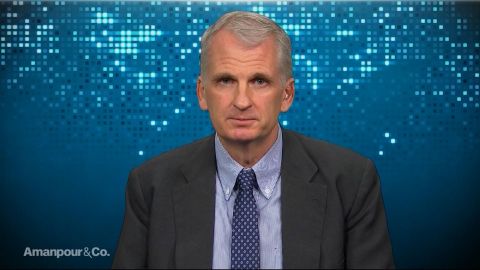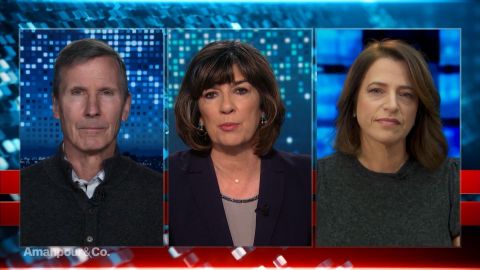Read Transcript EXPAND
CHRISTIANE AMANPOUR: So, first to you, Elizabeth. Just give us an update, because you have got the WHO saying a vaccine is still many, many, many months away from even being sort of tested. You have got all this debate over what quarantine does and doesn’t, and all these people still on the boats and some getting infected. Just where are we with the speed and rate of this infection now, Elizabeth.
ELIZABETH COHEN, CNN SENIOR MEDICAL CORRESPONDENT: I mean, Christiane, this infection is still spreading. No one thinks it’s going to slow down in any serious way very soon. As you mentioned, the virus is far away. First, they have to develop — a vaccine, rather. A vaccine has to be developed, first of all. And, actually, that’s the quick and easy part, relatively speaking. Then they have to test it. And testing it, by definition, takes months and months, because you want to make sure that it’s not going to cause problems. You have to test it for safety and efficacy. That takes quite a while. Now, you made a reference to the ships. One of the thoughts was that, hey, let’s keep people on the ships for 14 days, and that will be their 14-day quarantine. Well, that didn’t work out so well. The infection actually spread on the ships. One of the issues and probably the big issue is that the crews were not quarantined. They had to do their work. They had to do the laundry and make the foods and keep the boat running. And, of course, they were working with each other. And then they would go to the staterooms to deliver the clean laundry and the food. So that — those quarantines did not work out well, to say the least.
AMANPOUR: Let me ask you, John Pomfret, because everybody is sort of trying to find all sorts of different strands to this story. And it’s very, very interesting what you write about the political leadership in Beijing. This, you say, is a massive challenge to the authority of President Xi and his whole sort of — his whole policy as president. Tell me what you mean.
JOHN POMFRET, FORMER “WASHINGTON POST” BEIJING BUREAU CHIEF: So, you see – – I mean, basically, my belief is that this is the biggest challenge that the Communist Party has faced since the 1989 pro-democracy demonstrations that resulted in the June 4, 1989, crackdown. And Xi’s version of — I mean, I think that you basically have two strains within the Chinese Communist Party. One is an extremely heavy-handed authoritarianism, which is practiced by Xi Jinping. And the other is a lighter form of authoritarianism, which might have been practiced by some of his successors. And this is a significant challenge to the type of very tough authoritarianism that Xi Jinping has practiced over the last seven years, since he took rule of the Communist Party. And you see it reflected in some of the statements he’s made about how he’s been out in front in dealing with the virus and how he’s been leading China in its attempt to cope with the virus. They’re almost defensive, which you rarely see from a Chinese communist ruler.
About This Episode EXPAND
Tim O’Brien, senior advisor to the Bloomberg 2020 campaign, joins Christiane to discuss stop and frisk, Michael Bloomberg’s treatment of women and other criticisms of the presidential candidate. Historian Tim Snyder tells Ana Cabrera about his book “On Tyranny” and the health of American democracy. Elizabeth Cohen and John Pomfret give Christiane an update on coronavirus.
LEARN MORE


